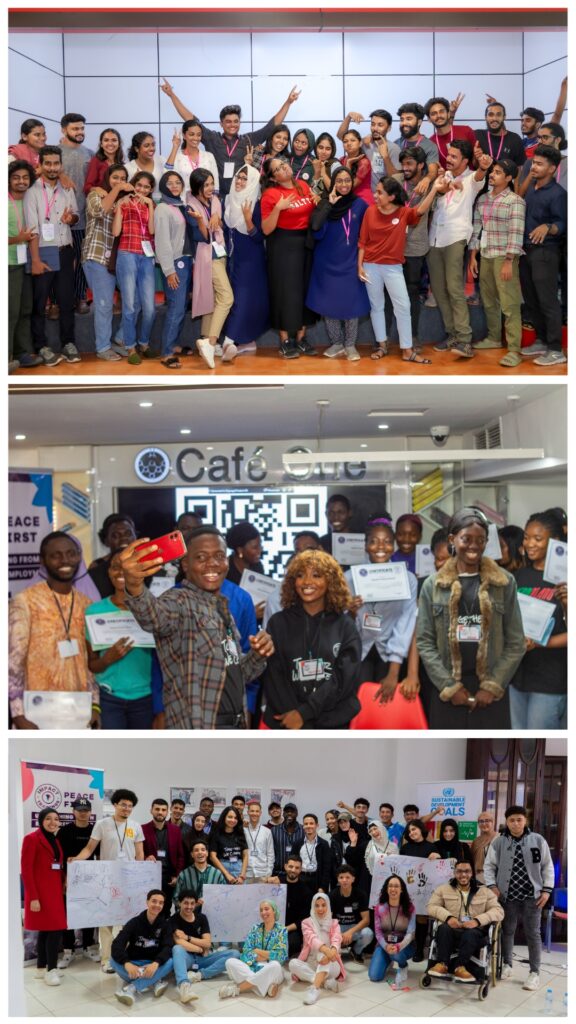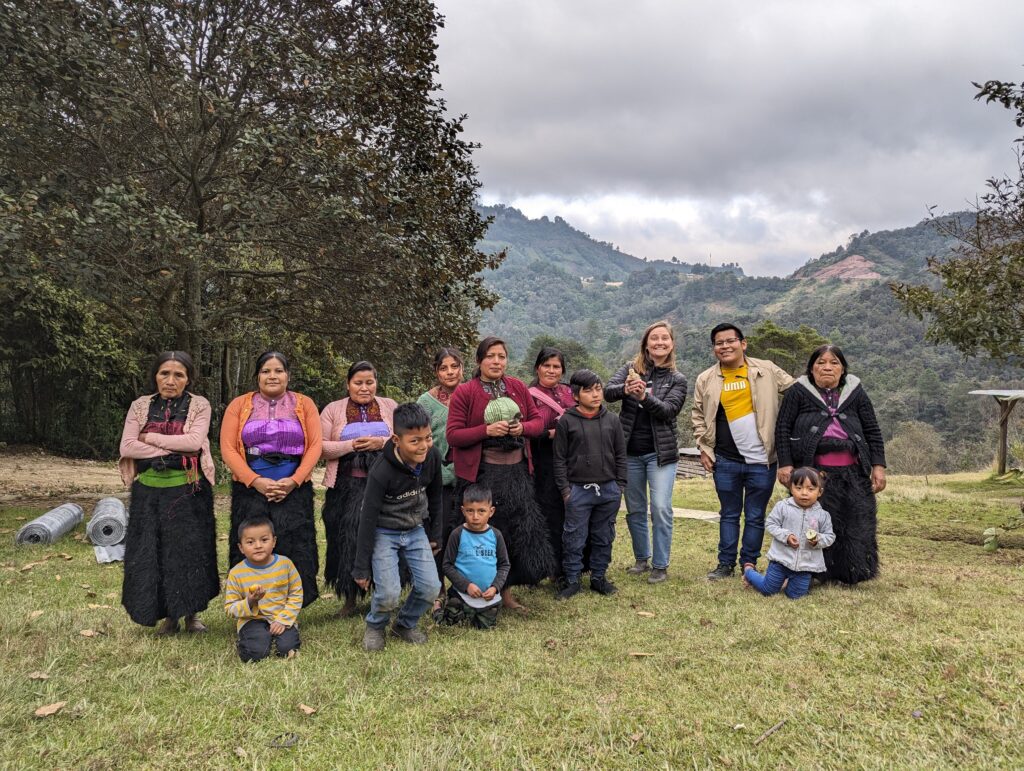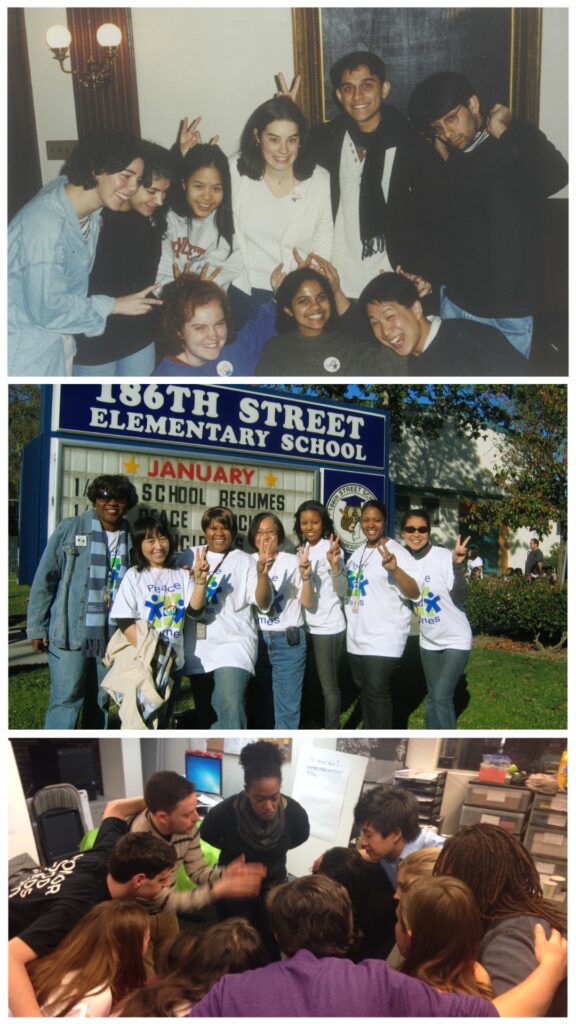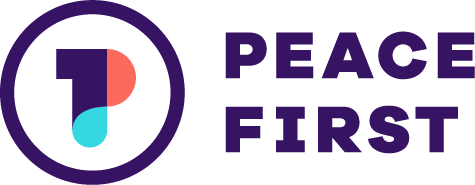Who We Are

We believe in the transformative power of young people to shape the future.
Around four billion young people under 30 are brimming with ideas, vision, and the power to address the world’s most pressing challenges. Yet, while history shows us the impact of youth-led movements—from ending child labor and advancing civil rights to the fight against apartheid in South Africa—today’s young people continue to face barriers that prevent their full potential from being realized.
Young people around the world are rising up, from Parkland to Ferguson, from Lagos to Stockholm, tackling entrenched issues in their communities and fighting for a world that’s more just, compassionate, and sustainable. However, many still lack the resources, guidance, and support needed to transform their ideas into action.
Peace First is here to close that gap. We support young changemakers through training, mentorship, and guidance as they dream big, design impactful solutions, and lead movements that create positive change in their communities and beyond.
Founded in 1992 with the vision that young people are essential drivers of progress, Peace First has grown from a local youth empowerment initiative into a global force for social good. Today, we are proud to support bold thinkers and doers across more than 166 countries, amplifying their voices and fueling their journeys to create a more just, compassionate world.
Peace First community members interact with each other in-person and in a range of digital spaces, including on social media, through our Learning Management System (LMS), and during online calls and workshops.
To keep these spaces safe, productive, and reflective of Peace First’s core values and commitment to young people’s safety and wellbeing, we make a series of commitments to you and we ask that you follow a set of Community Norms and a Code of Conduct that are detailed below.
Peace First is here to close that gap. We support young changemakers through training, mentorship, and guidance as they dream big, design impactful solutions, and lead movements that create positive change in their communities and beyond.
Community Norms are the broad principles that guide how we behave when interacting with other Peace First community members in any context. Peace First defines “community” as a group of changemakers who share our common goal of solving challenges that affect them. Our community includes program participants, grantees, partners, alumni, ambassadors, donors, staff, and volunteers. The norms apply to everyone in our community and anyone else invited into Peace First spaces.

We Will
- Apply a Safety & Wellbeing lens to all of our activities and abide by our Safeguarding Policy, helping to ensure that everyone feels safe and nurtured
- Promote community-building and collaboration in welcoming, inclusive spaces
- Take your privacy seriously: we will get your consent before communicating with you and never share your personal information without your explicit consent
- Act quickly to remove content and/or users that violate our Community Norms and Code of Conduct
Adhere to the following Community Norms
Be respectful
Help Keep Spaces Safe
Stay on Topic
Be Safe
Follow the Code of Conduct
Code of Conduct
You Should:
- Be welcoming, listen to others, and respect their opinions, especially those that are different from your own. We are a global community with diverse perspectives. Show up with curiosity, openness to learning and humility.
- Respect the privacy and personal information of other individuals associated with Peace First and do not reach out to them directly on their personal social media handles, unless they share them with you. You should respect boundaries set by others, for example, not messaging accounts that are set to private without consent.
- Show patience and compassion to one another and the Peace First team. Please be patient as you wait for a response from us.
- Help keep Peace First spaces safe. If you think someone is being hurtful, disrespectful, unsafe or otherwise inappropriate, please report it to a facilitator or via our online form.
You Should NOT:
Bully, harass or abuse another member of our community.
Be disrespectful, rude or use profanity to community members, facilitators or moderators.
Share personal information (such as phone number, credit card or banking information, personal address, etc.) with other community members.
You Should:
- Represent your relationship to Peace First accurately (i.e. on LinkedIn, Facebook, etc.).
- Only use Peace First logos with permission. This applies online and on printed materials, etc.
You Should NOT:
- Post inappropriate or harmful content including adult/sexualized content, content that exploits or abuses children, content that promotes or celebrates violence, criminal activity or terrorist organizations.
- Post messages in group settings that are not relevant to the majority of the group. Please message the moderator directly instead.
- Spam chats/emails/groups with content that is inappropriate or unrelated to the conversations on the group. This includes for business or personal services, or fundraising not related to your changemaking work.
You Should:
Be present and turn on your video if you feel comfortable to (and depending on internet connection).
Stay Muted when you are not talking
You Should NOT:
Send private messages to other call participants, except the call hosts.
Take screenshots or capture images or recordings of other participants without their consent.
"We can only solve the world’s greatest problems by empowering young people with the skills, compassion, and identity to be changemakers."
Peace First was founded by a group of young students at Harvard University in 1992 with a simple idea: we can only solve the world’s greatest problems by empowering young people with the skills, compassion, and identity to be changemakers.
With this mandate, the first era of Peace First was launched as a play-based model designed to teach young people about conflict resolution, called Peace Games. Eventually, we also introduced a changemaking curriculum and working directly with teachers and administrators to help students embrace changemaking skills.
Then, in 2013, we launched the Peace First Prize to recognize and award “best in class” changemakers and provide them with $50,000 to scale their social impact ideas. These prize winners were focused on making lasting social change in their communities by connecting across lines of difference with compassion, standing up for others and ideals with courage, and creating collaborative change by leading with others.


